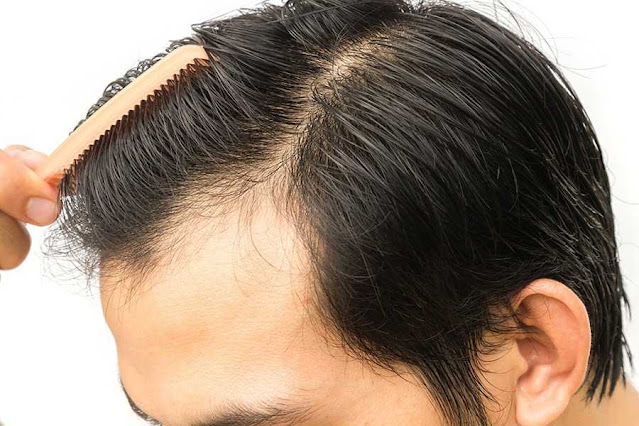Hair
transplant in India is a
monumental aesthetic procedure for several individuals not only to enhance the
appearance of the hairline and the density of hair on the scalp but to regain
their lost confidence as well. Besides the actual surgery, most patients are
also iffy about the itching that follows. It is a common consequence but an
extremely uncomfortable one.
However,
itching after a hair transplant is relatively common and is a body’s way of
healing the scars and scabs that are remnants on the scalp. You will get the best hair transplant clinic in India.
What Causes Itching After Hair
Transplantation?
Micro
punctures or incisions are made on the donor site, followed by incisions on the
receiver site. These scabs are nothing more than the surface sores that your
body cures over time, despite their small size.
The raw
wounds begin to heal shortly after the treatment, with the aid of red and white
blood cells. During the healing process, the wounds progressively close up and
develop scabs, which dry up and cause itching.
Itching
on the scalp usually begins as the scabs begin to come off the scalps. It takes
time for your body to adapt, especially if you've had hair transplant surgery.
In
standard cases, the itching will be there for about a week and gradually fizzle
down. However, in other cases, it can last up to four weeks until the wound has
completely healed and the scab has fallen off the treated site.
Even if
the itching gets worse, the last thing you want to do is vigorously itch the area.
That is what makes the situation worse. You should never scratch the itch
because by doing so you enhance the risks of further infections and allergies
in the treatment area.
What Causes Itching After Hair
Transplantation?
Micro
punctures or incisions are made on the donor site, followed by incisions on the
receiver site. These scabs are nothing more than the surface sores that your
body cures over time, despite their small size.
The raw
wounds begin to heal shortly after the treatment, with the aid of red and white
blood cells. During the healing process, the wounds progressively close up and
develop scabs, which dry up and cause itching.
Itching
on the scalp usually begins as the scabs begin to come off the scalps. It takes
time for your body to adapt, especially if you've had hair transplant surgery.
Growth:
Even the
regeneration of hair from the transplanted follicles causes itching, as strange
as it may sound. After a month or two, the transplanted hair will shed,
followed by fresh hair growth from the transplanted follicles. This is when the
itching becomes unbearable.
Hair
regrowth occurs not only around the recipient site, but also around the donor
site, posing the danger of additional irritation. Because all of the hair
follicles are destroyed, itching isn't as bad in the donor area.
However,
because hair development takes time, you should expect itching to come and go
over time.
Allergic Reaction:
Lastly,
an allergic reaction can trigger heavy itching after a hair transplant surgery.
This is common in patients who use random shampoo and conditioners that aren’t
medicated. Your surgeon will prescribe you the right kind of medicated shampoo
that you need to use. So, using anything besides that can put your scalp at
unrest and cause allergic reactions.
How Do I Deal With Scalp Itching
After a Hair Transplant?
Itching
is a frequent side effect of hair transplant surgery, and you can't deny that
it's annoying. The continuous need to itch gradually becomes unbearable.
However, this is where you must take charge and use self-control.
Besides that, there are a few ways
you can manage the scalp itch:
It
doesn’t matter whether it is due to a scab or a hair transplant in Kolkata; you should never scratch the
itching on the scalp.
Hair
spray after a hair transplant can help tend to the itching too. Medicated salt
sprays often help quicken the healing process substantially.
Take a
prescribed antihistamine medication to reduce the swelling and allergic
reactions that are causing the itching.
Avoid
using anything except medicated hair care products, including shampoos and
conditioners, because they don’t contain harsh chemicals that lead to poor
wound healing.
Another
important way to manage the scalp itch is by reducing exposure to direct
sunlight, dirt, and dust. So, try and stay indoors for a few days after the
surgery. Also, avoid swimming because the chlorine in the water can make the
itch flare-up.
You need
to follow every instruction that your hair transplant surgeon gives you. That itself should be
enough to help with the healing and reduce the risks of uncontrolled itching.








